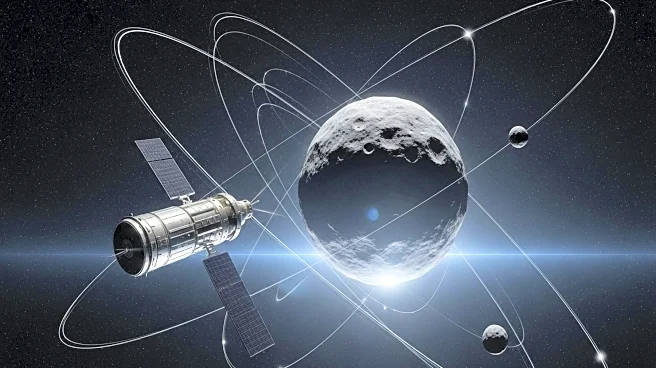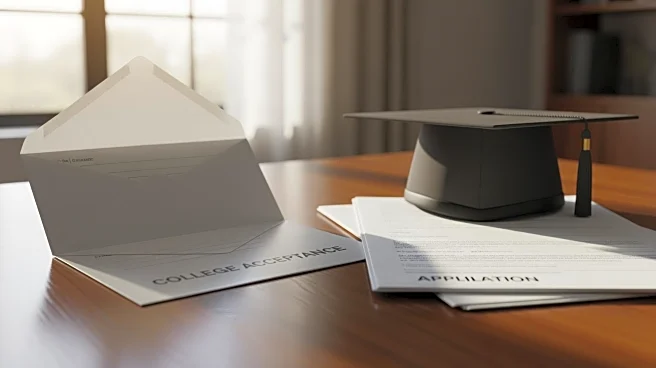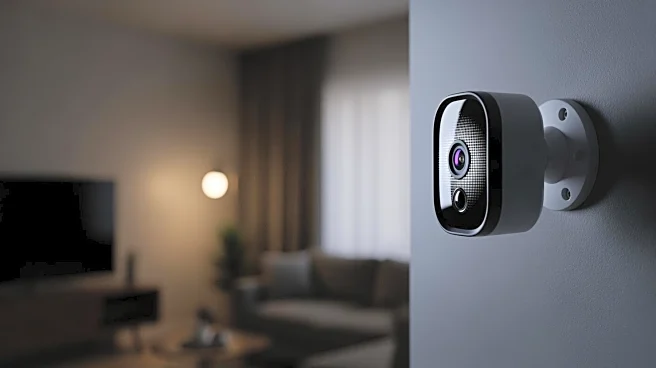What is the story about?
What's Happening?
The European Space Agency's Gaia mission has provided new insights into why many asteroids tumble chaotically rather than spinning smoothly. The study, led by Dr. Wen-Han Zhou, reveals that collisions and sunlight effects are crucial in understanding asteroid rotation. The research, presented at the EPSC-DPS2025 Joint Meeting, shows that slow-spinning asteroids are more susceptible to collisions, which can cause them to tumble. The study also highlights that the effect of sunlight on tumbling asteroids is weaker because different parts of the surface absorb and re-emit heat at varying times, preventing a consistent push in any direction.
Why It's Important?
This discovery is significant for understanding the physical properties of asteroids, which is vital for deflecting potentially hazardous asteroids on a collision course with Earth. The findings suggest that many asteroids are loosely held together, resembling rubble piles with cavities. This knowledge is crucial for planning deflection strategies, as a rubble pile asteroid would react differently to a kinetic impact compared to a solid body. The study also opens up possibilities for using machine learning to analyze asteroid data, potentially leading to a comprehensive catalogue of asteroid structures.
What's Next?
Future surveys, such as the Vera C. Rubin Observatory's Legacy Survey of Space and Time, will apply these methods to millions more asteroids, refining our understanding of their evolution and composition. This could enhance our ability to predict and mitigate asteroid threats, providing a clearer picture of how to handle potential impacts.
Beyond the Headlines
The study's implications extend to the ethical and practical considerations of planetary defense. Understanding asteroid composition could influence international policies on space exploration and defense strategies, highlighting the need for global cooperation in addressing extraterrestrial threats.














